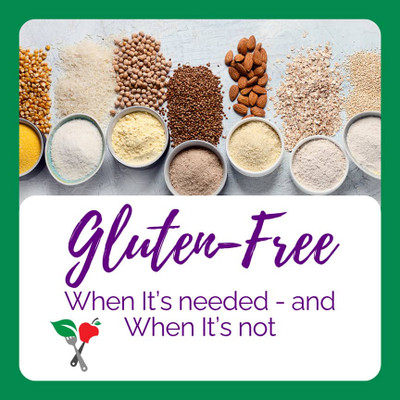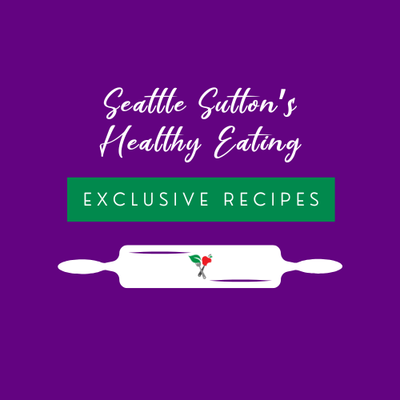Seven Most Common Weight Loss Myths
On a daily basis we are inundated with countless nutrition and weight loss messages. Some of these are accurate, while others couldn’t be further from the truth. But “buyer beware” because many nutrition statements or health claims out there are simply trying to sell you something! Something that usually is too good to be true. And while sound nutrition science may not always offer a quick fix, it never goes out of style. Here is a list of weight loss myths we hear every day.
1. 'In order to lose weight you must cut out carbs' - The amount and type of carbohydrate you eat is important, but cutting them out altogether doesn’t increase your chances of long term, successful weight loss. Most cells in the body prefer carbohydrates as their fuel source. In fact, cutting carbohydrates to lower than 130 grams a day will negatively affect your brain function due to a lack of serotonin production. There are different types of carbohydrates; simple and complex. Simple carbs are found in candy bars, soda, and baked goods, while complex carbs include whole grains, fruits, and beans. Complex carbohydrates will offer fiber for gastrointestinal health, slow released carbohydrates for sustained energy levels, and fuel for the brain, while simple carbohydrates create a surge in blood sugar that wreaks havoc on energy levels. The confusion may be due to the fact that so many comfort foods, that are high in carbohydrates, are also high in calories. But now more than ever, research is popping up everywhere explaining why we actually should be eating carbs - everyday.
2. 'Snacking is bad' - Usually associated with chips, ice cream, and candy bars, snacking has received a bad reputation. When trying to cut calories, dieters think that the fewer times they eat in a day, the better. But snacking is actually a recommended part of an overall healthy meal plan. Eating spikes your metabolism, so the more often we eat (while keeping in mind smart choices!) the more often you are elevating your metabolic rate. More importantly, try to focus on mindful eating. If you are hungry, indulge in a small snack until mealtime. This can prevent overindulging when we let ourselves get too hungry. If you're hungry, pay attention to what your body is telling you. And if it's telling you that a protein-, healthy fat-, or fiber-rich snack is what you need to keep pushing through the day, then by all means, have that snack.
3. 'Natural is better' - there is very little regulation put on the use of the word “natural” and many of these foods deliver lots of calories. From a food science perspective, it is difficult to define a food product that is 'natural' because the food has probably been processed and is no longer the product of the earth. That said, the FDA has not developed a definition for use of the term or its derivatives. However, the agency has not objected to the use of the term if the food does not contain added color, artificial flavors, or synthetic substances.
4. 'Never eat after 6pm' - It makes no difference what time you eat as long as you don’t eat so much that it keeps you awake. Some say certain foods keep them awake, such as chocolate, caffeine, alcohol, or spicy foods. Your body's digestion and metabolism relies on the foods you eat in a 24-hour time period, balanced with the amount of calories your body burns for daily activities. If you eat before bed, yet stay within your daily calorie requirements to maintain a healthy weight, eating before bed and the way your body digests food should not affect your weight.
5. 'Doing something short term will have long term results.' - One of the biggest myths out there is that following a fad diet for a certain amount of time will result in long term weight loss. Before starting a healthy eating plan or diet, ask yourself if this is something you could sustain over the long haul. Can you consume only protein shakes or bars forever? Cabbage? Grapefruit? Soup? If not, it’s best to not start in the first place. When calories are cut drastically for an extended period of time, the body reacts by slowing down metabolism, which is counterproductive to weight loss. Although it’s not going to make headlines, small positive changes in diet really add up to long term success.
6. 'Certain foods can make your burn calories' - No foods can burn fat. While different foods offer different health benefits, people are often left wondering if calories vary from one food to the next. But a calorie is a calorie, no matter where it comes from. Some foods with caffeine or spice may speed up your metabolism (the way your body uses energy or calories) for a very short time, but they do not cause weight loss. The extra calories certain foods may burn is so insignificant that it really doesn’t make a difference.
7. 'Gluten free diets help with weight loss' - Eliminating a specific food or groups of foods will not magically make the weight melt off your body. Even though most diet books are based on this premise, it simply isn't true. When it comes to gluten and weight loss, research shows that most people following a gluten free diet actually gain weight. Health benefits, not weight loss, from following a gluten free diet are only derived from those with Celiac disease or gluten intolerance. Celiac disease is an autoimmune disorder that attacks the intestine when gluten is ingested. Gluten is a protein found in wheat, rye, barley, and oats. A large portion of gluten containing foods comes from baked and processed foods.

Interested in eating healthy? Hungry for more?







 Weight Loss
Weight Loss Health & Wellness
Health & Wellness Diabetes
Diabetes Heart Health
Heart Health Motherhood & Family
Motherhood & Family Dietary Restriction
Dietary Restriction Other Health Conditions
Other Health Conditions About SSHE
About SSHE


